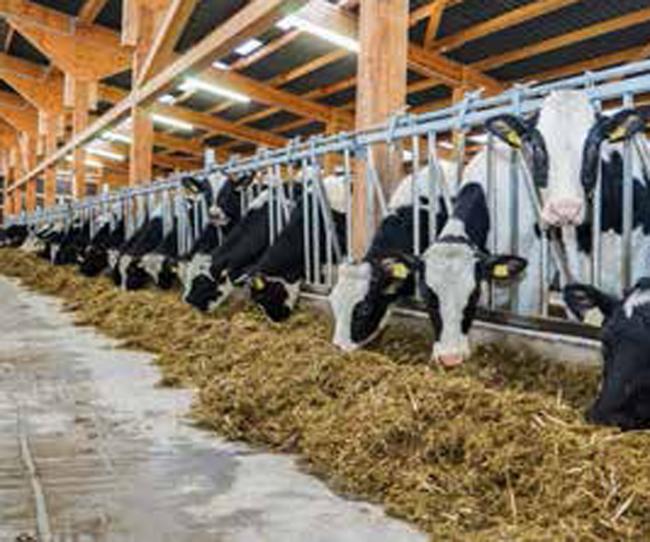Integrated approach aimed at reducing the use of antimicrobial in milk production for regional PDO cheese, contributing to reduce the risk of antimicr

1) Obtain standardized data on antimicrobial consumption in a sample of dairy herds and correlating these data to production, biosecurity and welfare conditions, in order to identify critical points and risk factors.
2) Identify the most effective preventive practices to be adopted on farm, together with the use of experimental diagnostic tools.
3) Verify the effectiveness of recommended measures for the reduction of antimicrobial consumption. The expected result is a reduction of at least 20% of antimicrobial use in a selected subsalmple of farms.
4) Create the basis for certification of rational use of the antibiotic within the same food chains.
1) Definition of antimicrobial consumption (DDD), level of welfare and biosecurity in 45 dairy herds conferring milk to three dairies (2 producing Parmigiano Reggiano and 1 Grana Padano cheese).
2) Identification of the main risk factors for antimicrobial use, through an integrated approach with animal welfare and biosecurity
3) Preparation of a manual of good farming practices and specific instructions for a small number of farms (two for each dairy) aimed at reducing the antimicrobialconsumption.
4) Monitoring the antimicrobial consumption of all the 45 farms, through the computer application (see paragraph 1), to verify the results obtained by the farms.
Massive use of antibiotics in human and veterinary medicine has favored the emergence and spread of resistant pathogens, causing serious problems to human and animal health.
Epidemiological data available identified as the cause of this problem a non-rational use of antimicrobials in human medicine and in animal husbandry. It is well demonstrated that resistant bacteria can be transferred through different routes from farm animals to the human population, and that resistance genes can be transmitted between bacteria. The problem of antimicrobial resistance is now a priority, both for public health and animal husbandry. The inappropriate use of antibiotics in human and veterinary medicine has led to the emergence and spread of the phenomenon, with serious consequences (in Eu 25,000 deaths per year and health costs of 1.5 billion Euros). The phenomenon impacts heavily on livestock production, both for inefficacy of therapies and for the loss of market of agricultural products of animal origin as a result of the industry blaming by the consumers.
Massive use of antibiotics in human and veterinary medicine has favored the emergence and spread of resistant pathogens, causing serious problems to human and animal health. It is well demonstrated that resistant bacteria can be transferred through different routes from farm animals to the human population.The main objective of the project is to collect data about antimicrobial consumption in dairy herds and to implement practices for its reduction.
The project will go through three actions:
1) Define the baseline of antimicrobial consumption in 45 dairy herds, belonging to 3 different dairies. This action will be possible through an innovative computer application tool, developed by IZSLER, aimed at collecting antimicrobial consumption data, following the EU standards (DDD), in parallel with welfare and biosecurity data..
2) Identification of risk factors for drug consumption through an integrated approach with animal welfare and biosecurity, resulting in a manual for the reduction of antibiotics consumption.
3) In a subset of six farms (two for each dairy) we will predispose specific operating instructions aimed at correcting specific risk factors for the antimicrobial use, also applying innovative and rapid diagnostic tools (diagnosis of mastitis on farm).
4) Follow up: the results obtained in all the herds will be monitored, with the objective to reduce the use of antimicrobials of at least 20% at the end of the project in a subset of six herds.
The data collected and the acquired models can be disseminated and extended to the entire sectors of Parmigiano Reggiano and Grana Padano production chain, forming the basis for future certification projects regarding rational use of antibiotic.
| Titolo/Descrizione | Url | Tipologia |
|---|---|---|
|
Relazione Tecnica Finale del Progetto
|
Materiali utili
|